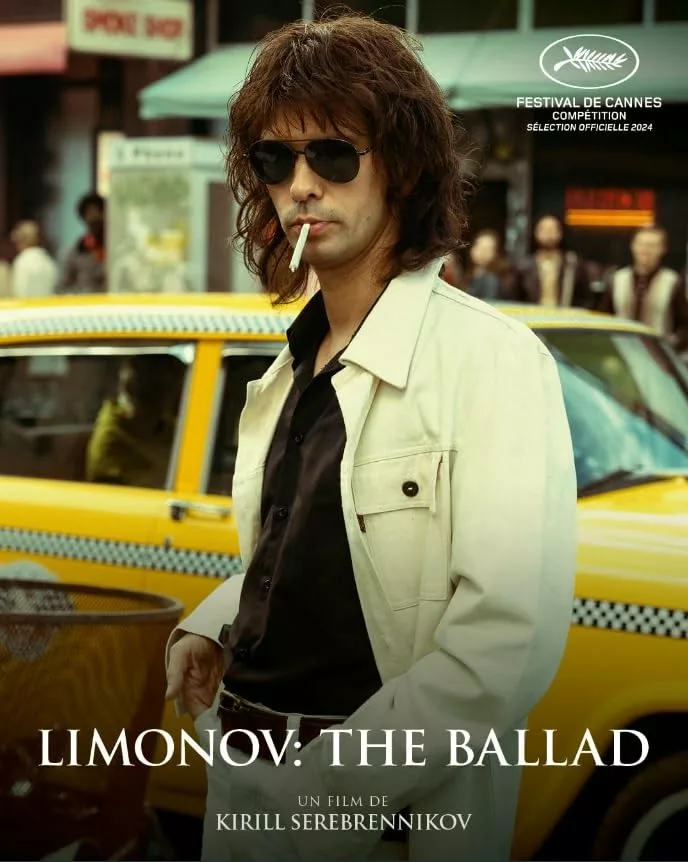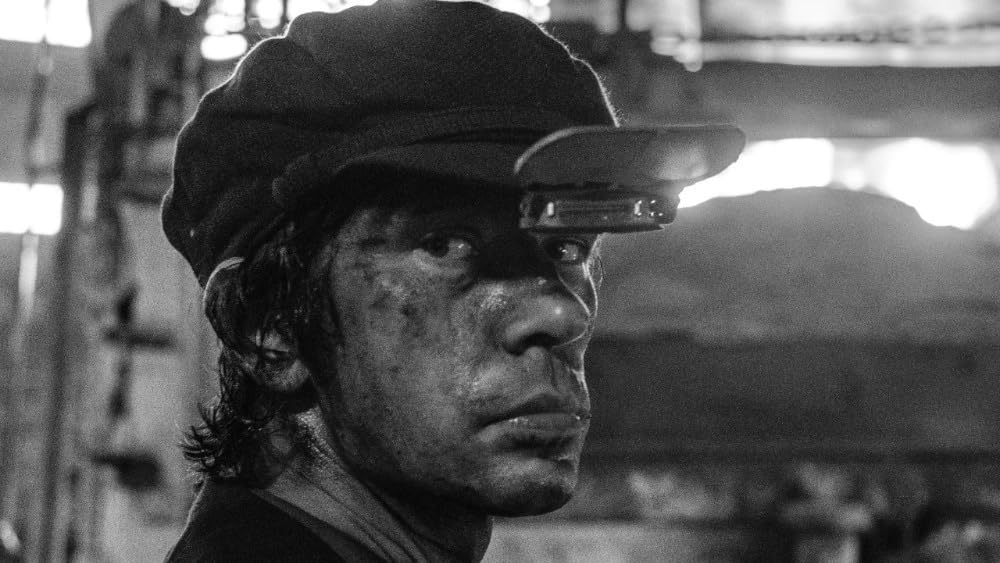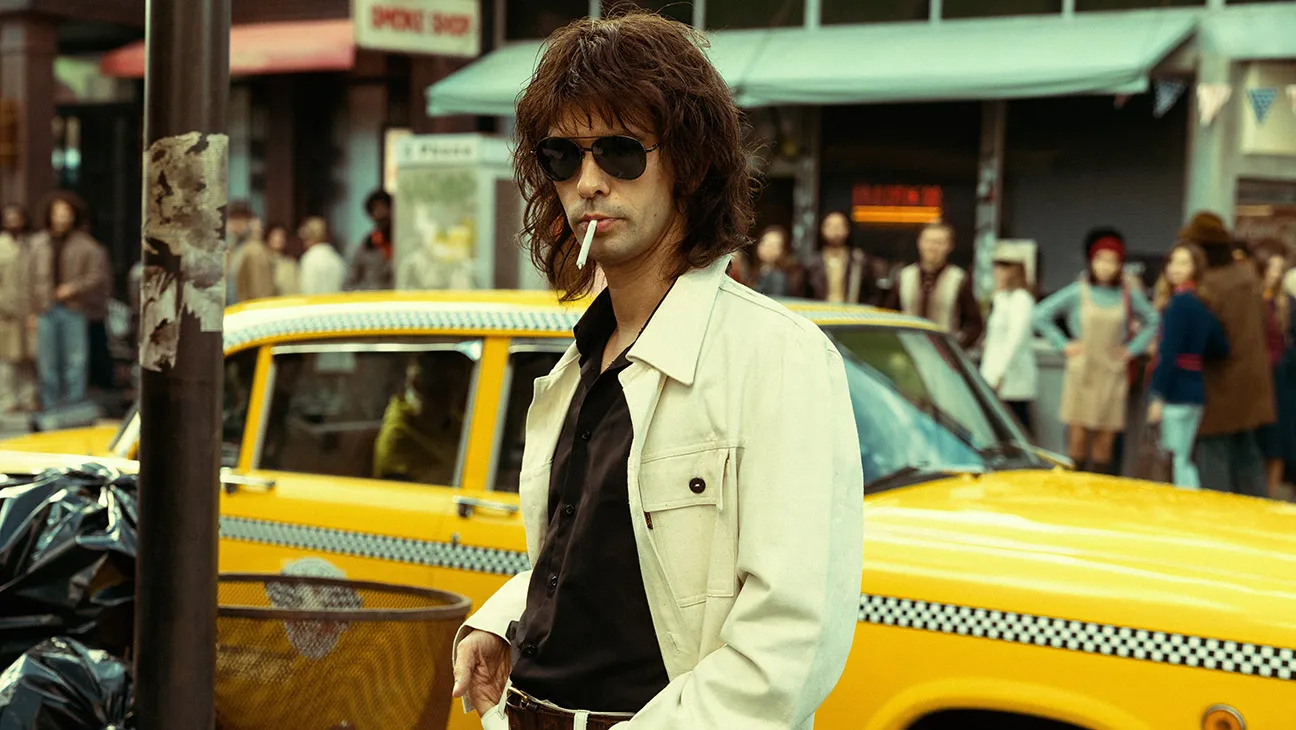Eduard Limonov lived a life of radicalism and contradiction. A poet, punk, writer, and political firebrand, he was by all accounts a magnetic and mercurial figure. The biopic Limonov: The Ballad sets out to capture this enigmatic man’s improbable journey.
Based on Emmanuel Carrere’s book, the film depicts Limonov from his days as a dissident writer in the USSR to his later controversial right-wing activism in Russia. At the helm is director Kirill Serebrennikov, known for unconventional biopics that blur reality and imagination.
True to form, he takes a freewheeling approach, leaping between times and places in fragmented yet propulsive storytelling. But it’s Ben Whishaw’s electric performance as Limonov that powerfully conveys the many sides of this endlessly contradictory personality. Through raucous cinematography, vivid editing, and Whishaw’s captivating portrayal, the film succeeds in grasping the essence of a man forever at odds with the world yet magnetically compelling.
Kirill Serebrennikov’s Cinematic Odyssey
Eduard Limonov lived a life of constant change and contradiction, taking him from a Soviet-era factory worker to a radical political figure. Serebrennikov’s film follows this unlikely hero across decades and continents, weaving together the threads of Limonov’s eccentric and eventful existence.
We first meet Limonov in late-Soviet Ukraine, frustrated by the narrow confines of small-town life and longing to share his rebellious poetic voice. His restless spirit soon leads him to Moscow and later to exile abroad as his unorthodox views bring him into conflict with the authorities. The lively streets of 1970s New York prove an unlikely home as he struggles to find purpose in the foreign city after his beloved Elena departs.
But Limonov’s wayward journey is just beginning, next winding through bohemian Paris, where he finds acclaim for his wry memoirs. Ever the enigma, he mystifies friends and foes alike with his elusive mix of viewpoints, railing against capitalism yet nostalgic for aspects of the Soviet regime. As his homeland changes around him, Limonov returns to Russia seeking a new path, launching controversial political movements that confound expectations.
Through it all, Ben Whishaw brings intense nuance to Limonov—at once vulnerable and grandiose, his slippery principles shifting like the sands of history. With inventive formal tricks, Serebrennikov weaves a rich tapestry encompassing lively scenes from different eras. His film is a fittingly unconventional tribute, mirroring Limonov’s own border-crossing life of passion and provocation through the 20th century’s twilight of ideologies.
Eduard Limonov Comes to Life
Ben Whishaw brings Eduard Limonov to vibrant life in this biographical drama. Taking on such a complex figure would be a challenge for any actor, but Whishaw rises superbly to the task. He captures the many sides of Limonov—by turns grandiose, tender, raging, and despairing—often within the same moments. You truly believe this is a man constantly grappling with turbulent inner forces.
Whishaw throws himself fully into the role, holding nothing back physically or emotionally. His daring performance ensures Limonov is not just a larger-than-life myth but a flesh-and-blood human whose passions and inconsistencies make as much sense as his politics are questionable. The depth he finds in a figure many would dismiss as unknowable gives the audience a window into the soul of this intriguing dissident.
Supporting Whishaw’s transformation, Viktoria Miroshnichenko is mesmerizing as Limonov’s lover, Elena. Her natural beauty is the perfect foil to Limonov’s restlessness. Their chemistry intensifies scenes of both tenderness and violence. As politics pull them apart, you feel her sadness at losing the man who once set her heart ablaze.
Other standouts include Maria Mashkova’s forlorn Anna and Alexander Prince Osei’s brief but impactful role. Together, this gifted ensemble ensures Limonov’s journey, for all its flaws, feels grounded in humanity. Their collective accomplishment brings this provocative historical figure to pulse-pounding life.
Limonov’s Ballad of Change
Kirill Serebrennikov’s film captures the chaos and color of Eduard Limonov’s life through an inventive visual style. Scenes move between times and places in abrupt cuts, mirroring Limonov’s many transformations. News clips and propaganda posters flash between chapters, anchoring moments to their eras.
Dynamic steadycam shots are a highlight. Characters literally walk through streets and rooms, taking the viewer across decades. Past blurs into present as settings subtly shift, honing our sense of time passed. Music strengthens these transitions, with songs like “Walk on the Wild Side” evoking eras’ spirit.
Animation and archival footage also mix reality and imagination. Scenes transition with whimsical doodles, recalling youthful poems. Newsreels place private scenes in historic context.
Production design is meticulous. Recreated 1970s New York comes to gritty life down to graffiti and dirty streets. Costuming equally grounds periods: Limonov dresses to shock in every land and age.
Cinematography brings eras viscerally alive. Scenes play in crisp 35mm or grainy 8mm, fitting their times. Light and shadows enhance mood, whether in broody underground bars or Moscow’s gloomy flats.
This restless, roaming approach keeps viewers racing alongside Limonov. Rather than a linear portrait, we experience his Ballad of Change—the ecstasies, revolts, and reforms he lived through a prism of sensual dissent. Serebrennikov’s vision pulls us into the currents of his subject’s border-bending life.
Eduard Limonov’s Provocative Politics
While Kirill Serebrennikov’s biopic Limonov: The Ballad dazzles with its kinetic storytelling and depiction of its subject’s lifelong rebellious spirit, some elements of Eduard Limonov’s life and politics are left less illuminated. As a dynamic romp across decades, the film understandably keeps its focus on vibrantly conveying the poet’s restless soul. However, Limonov’s later fascist leanings that saw him lead the openly nationalist Bolshevik Party do not receive equal treatment.
Some may feel this omission risks minimizing important criticism of Limonov’s far-right stances. By largely glossing over his alignment with separatist militants in Ukraine and vocal support for Russian annexation, uncomfortable aspects are quickly brushed aside. However, selectively addressing such a contradictory figure was likely unavoidable for a biopic format. Delving too deeply may have disrupted the stylistic energy and romanticized outsider image that appear central to the filmmaker’s vision.
It’s debatable if omitting substantive acknowledgment of Limonov’s nationalist politics lessens their impact. For many, mere mention at the end fails to properly contextualize how his rebellious persona evolved into active involvement in violent causes. At the same time, emphasizing fluctuating personal ideologies less than flamboyant personas allowed for maintaining focus on the man’s irrepressible spirit. Ultimately, difficult choices were required in adapting such a polarizing and mercurial subject to screen. While not a comprehensive accounting, the film stirringly captures what drove Limonov to continually upset expectations.
Eduard Limonov’s Life Captured in Captivating yet Uneven Biopic
The film wraps up its examination of Eduard Limonov, leaving us with more questions than answers about this elusive figure. Ben Whishaw delivers a tour-de-force performance, molding himself fully into Limonov’s many facets. But the fragmented nature of the film mirrors its subject’s own contradictions.
We witness Whishaw disappearing completely into the role, bringing to life Limonov’s grandiosity and occasional buffoonery with equal dedication. His portrayal seamlessly shifts between registers—tender and monstrous, ridiculous yet commanding. Through Whishaw’s committed work, we get the most complete view of this mercurial man. However, some felt he was miscast, with another actor possibly embracing the soulfulness the director tried to discourage.
While boasting stylish flourishes and captivating sequences that sweep through time, the film keeps us at arm’s length from truly understanding its protagonist. It focuses more on capturing his rebellious spirit than interrogating his politics and their real-world impacts. We learn a lot about Limonov through dramatic revelations but are left with as many uncertainties at the end as at the start.
Just as Limonov himself remained impossible to fully define, so too does the film—ragtag yet vibrant, earnestly crafted yet sometimes missing the mark. But perhaps this unevenness fittingly mirrors the contradictions at this man’s chaotic core. Ultimately, it succeeds best as a character study rather than a political documentary, bringing to life a provocative and endlessly enigmatic figure in an energetic, if flawed,portrait.
The Review
Limonov: The Ballad
While uneven in its execution, Kirill Serebrennikov's "Limonov" succeeds in capturing the restless energy and infinite contradictions of its elusive subject through Whishaw's unforgettable lead performance. Despite narrative and stylistic missteps, the film brings an iconic countercultural figure compellingly to life. Though it raises more questions than answers, the portrait feels truthful to the mercurial and ever-evolving nature of this controversial writer-provocateur. Ultimately, for all its rough edges, this biopic crafts an arresting character study of an endlessly enigmatic man.
PROS
- Ben Whishaw's powerful lead performance
- Captures the spirit and restlessness of Limonov.
- Stylish visuals and filmmaking flourish
- A sweeping chronological examination of Limonov's life
- The sense of mystery it leaves around its enigmatic subject
CONS
- Uneven pacing in the latter parts of the film
- Narratives can feel fragmented and loose at times.
- Lacks meaningful exploration of Limonov's politics
- Female characters feel underdeveloped.
- Direction leaves some emotional beats wanting.





















































